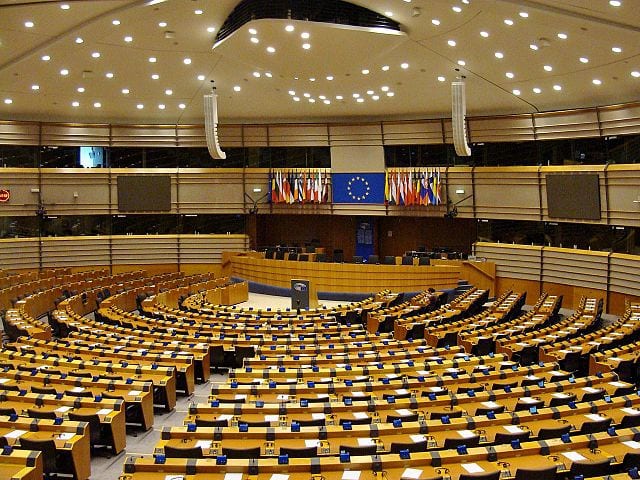Michael Cottakis is a political scientist and director of the 1989 Generation Initiative at the London School of Economics’ European Institute.
LONDON — One of the key arguments of the populists who have continued to attack the European Union’s legitimacy is that they represent the will of the people and embody freedom and democracy in a long battle with faceless, corporatist Brusselite bureaucrats. While this is disingenuous, it contains a grain of truth. The E.U., after all, is not a democratic system. And while it has sought to reform for some time, those efforts tend to miss the point.
One of the best examples of this is the much-vaunted European Citizens’ Initiative (ECI), which allows citizens to propose legislation. Once an idea receives a million signatures, it triggers a review by the European Commission, which then decides whether it will pursue the suggestion. Despite its admirable intentions, however, the ECI has proven a damp squib. Since its launch in 2011, only three proposals have reached the signature threshold, initiating a review, but none of them went on to become law.
There are ways the ECI can be reformed, such as requiring a lower threshold of citizens to bind the commission to debate and including more robust followup mechanisms. But such changes will not address the fundamental problems of the E.U. Perennially low turnouts at European parliamentary elections, poor perceptions of legitimacy and youth apathy toward the E.U. will not be conjured away by a technocratic fix. For the E.U.’s experiment with direct democracy to be effective, it must first build an E.U. democratic system to institutionalize the role of citizens in the decision-making process.
In such a system, a “European Citizens’ Assembly” should be set up as a second chamber of the European Parliament. This body could consist of citizens who are selected annually and charged with vetting and scrutinizing the Parliament’s legislative proposals and decisions — similar to the role of a jury in a court of law. The Citizens’ Assembly should have the power to force amendments to legislation, like with the House of Lords in the U.K. Parliament.
The way citizens vote in European elections must also change to encourage greater participation, particularly among the younger generation. A system of e-voting should be made available as part of a wider European Parliament online app, which will allow citizens to remain in touch with key committee debates, express their satisfaction or concerns and enable direct conversations with elected officials around key issues.
Eventually, there should be a single president of the European Union, directly elected by European citizens, who would receive the powers currently held by the European Commission president. This would provide the EU with a single figurehead instead of the three it currently has in the Council, Commission and Parliament, a setup that leads to popular confusion and frustration. The 28 commissioners, from each of the member states, should be separated from the Commission and should act as a European government that would retain the sole power to initiate legislative proposals. Each commissioner should also be elected during the European parliamentary elections. This would allow the Commission to become increasingly depoliticized, functioning as an elite civil service rather than as the political technocracy that it has become.
In an environment of wider democratic participation and debate, the direct democracy that the ECI embodies can become an effective means of connecting citizens with decision-making processes. But it will need to become binding — with a certain number of signatures leading to pan-European referenda on a set of defined issues.
But how to bring about these changes? The E.U. may be unable to renew itself. It is an extraordinarily complex system, resistant to outside attempts to execute change. Basic system management theory suggests that once an organization surpasses a certain level of complexity, it becomes impossible to renew it from within. It will thus require an external impetus.
This can be achieved politically. A series of activist heads of government from a critical mass of member states can own and lead the reform process. Today, French President Emmanuel Macron is somewhat alone at the head of this movement. Without much support from within the European Council, he will need help from elsewhere. Pro-European governments must align with civil society in a civil-political movement for democratic reform.
The good news is that innovative organizations are mushrooming up across the continent, attempting to connect citizens across borders into a broad movement for democratic renewal. Volt Europa is a transnational political party seeking to break into the European Parliament at the next election. Pulse of Europe is a group of activists attempting to build cross-border support for a united Europe through flag-waving rallies in cities across the continent. DiEM25 seeks to develop an international consensus on how to democratize Europe. The 1989 Generation Initiative, which I direct, is a pan-European think tank that connects researchers, thinkers, young professionals and policy makers so that they can research, discuss and advocate for policies at the local, national and European level.
A mass movement will need to emerge around these groups so that they can pursue a united set of objectives for E.U. reform. These bottom-up groups, when allied with reform-driven E.U. governments, can capture the populists in a democratic pincer movement if they agree to work across party lines and put minor differences aside. Our failure in this effort will be the populists’ gain. The E.U. is not yet a democracy. It will need to become one, if it is to survive.
This was produced by The WorldPost, a partnership of the Berggruen Institute and The Washington Post.





